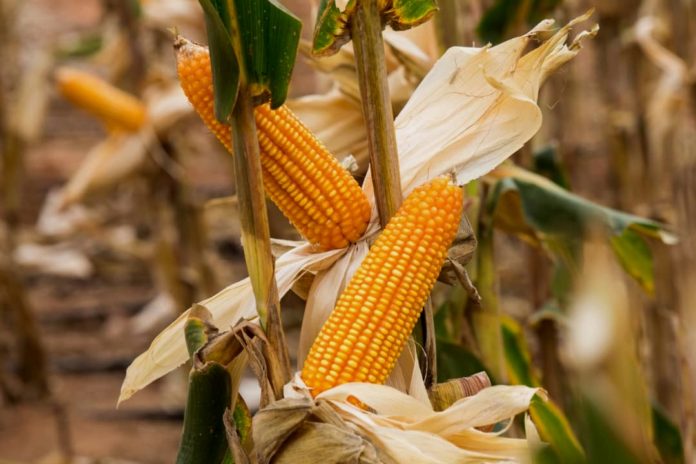Unequivocally, improved quality seeds are cardinal elements for boosting production in the agriculture sector. In quest of achieving high yield, disease, and pest resistance, the Legacy Crop Improvement Centre has introduced a new high yield maize variety.
Mr. Amos Rutherford Azinu, the CEO of Legacy Crop Improvement Centre said improved quality seeds are a necessity for the smallholder farmers.
Mr. Rutherford said certified high quality seed of crop varieties, is an important factor for increasing crop productivity and production in farmer’s fields. “Our smallholder farmers must work on their science consciousness, we’re not a science conscious nation….if we let our suspicious surpass our beliefs in science then we have lost the fight against hunger and poverty” he stated.
Mr. Rutherford made these remarks in an interview at the second edition of hybrid seed maize variety show to outdoor four high yielding maize hybrid varieties namely LEGACY 2, LEGACY 17, LEGACY 25 & LEGACY 26 at LCIC research field in the Eastern region.
The CEO said it is crucial for every nation to work towards enhancing seed security. According to him, these new hybrid maize seeds will give the smallholder farmer between 8 -9 tons per hectare.
“All governments across Africa are aware of the importance of quality seed in contributing to increasing agricultural productivity and production, I hope farmers will be interested in getting some of these new hybrid seeds for production,” he said.
“I have observed that farmers are becoming dependent on the government for seed supply and that’s why LCIC is the alternative partner,” he said.
Mr. Rutherford urged growers to resort to improved seeds varieties, resistant to climate change and other harmful pests to help improve Ghana’s agricultural sector and ensure food security and boost the economic status of farmers.
“Economic impact of bad climatic conditions has been projected to cost local farmers several thousands of Ghana cedis, the amount is spent on agrochemicals to control the increasing number of pest infestations”, he said.
President of the National Seed Trade Association of Ghana Mr. Thomas Havor made known that the rural agriculture economy of Ghana is estimated to be operating only at 20% of its potential and thus unable to adequately address the issues of poverty reduction and food insecurity because the sector continues to consist mainly of smallholder farmers using unimproved seeds, fake chemical fertilizers, and have no irrigation facility.
Mr. Havor, however, urged farmers to get good quality seeds from companies like Legacy Crop Improvement Centre where they are sure of good seed quality and much yields.
He called for the development of capacities and the establishment of more infrastructure locally to ensure a sustainable seed system in the country.
“Anywhere agriculture has developed in the world you have an excellent capacity-building policy” he stated.
Story by; Reuben Quainoo.








